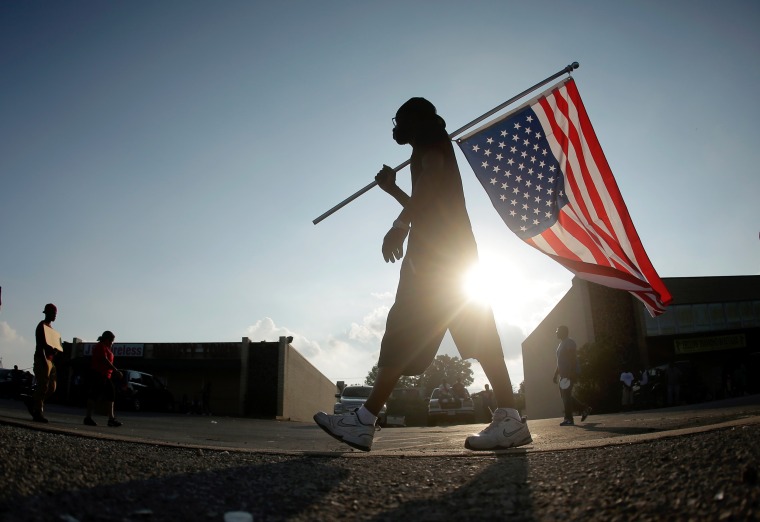Martin Luther King Jr. once said, “Freedom is never voluntarily given by the oppressor; it must be demanded by the oppressed”. If there were a sentiment that marked 2015’s year of black resistance this would be it—alongside the now iconic term #BlackLivesMatter.
Throughout the year, on what seemed like a daily basis, innocent black people went from being ordinary folks to #hashtags at the speed of a bullet.
Many wondered, as the list of those memorialized by Black twitter grew to heartbreaking lengths, if the state of violence against black bodies was being ramped up across the country. Or with the advent of social media, these abuses no longer stayed within the confines of long neglected neighborhoods and communities, many of which have been historically targeted by racism and police harassment.
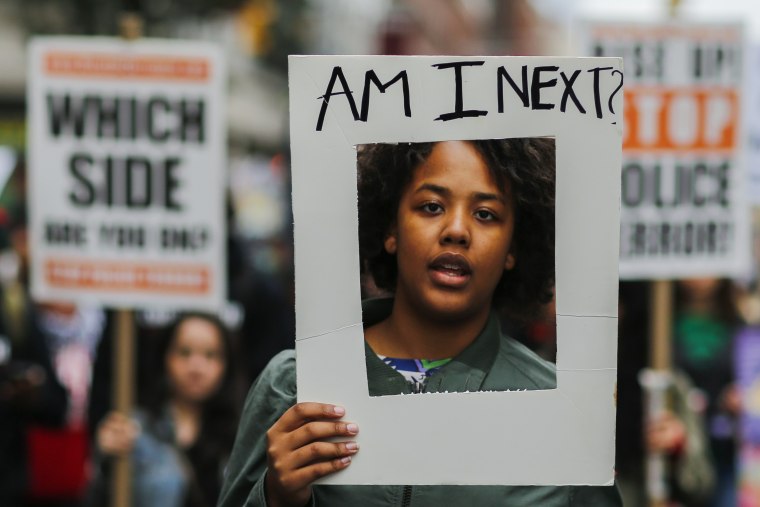
Just look at how the media neglected to cover the trial of disgraced Officer Daniel Holtzclaw. Here was a “man of the law” who targeted and sexually assaulted low-income black women with previous wrap sheets because he knew no one would believe them. He knew that he could violate them any which way he chose—because who were they going to call the police? As one victim stated, “what kind of police do you call on the police?”
Her comments were eerily similar to that of Rachel Jeantel, who was asked during the trial for George Zimmerman why she didn’t call the police when Trayvon Martin told her he was being followed.
With each act of resistance we are upholding our right to be free from persecution and execution based on our skin color.
While the killings and state sanctioned violence towards black people didn’t see any slowing this year, our knowledge of it and protests against it were also on the rise. Just think, if it had not been for social media, those women’s stories would have gone unheard.
With each incident that unfolded, #BlackLivesMatter protestors were both on the ground and online drawing attention to it.
On MLK Day, January 19th of this year, nationwide protests were held as a call for racial justice with signs reading “I Still Have a Dream” and #ReclaimMLK trending on social media.
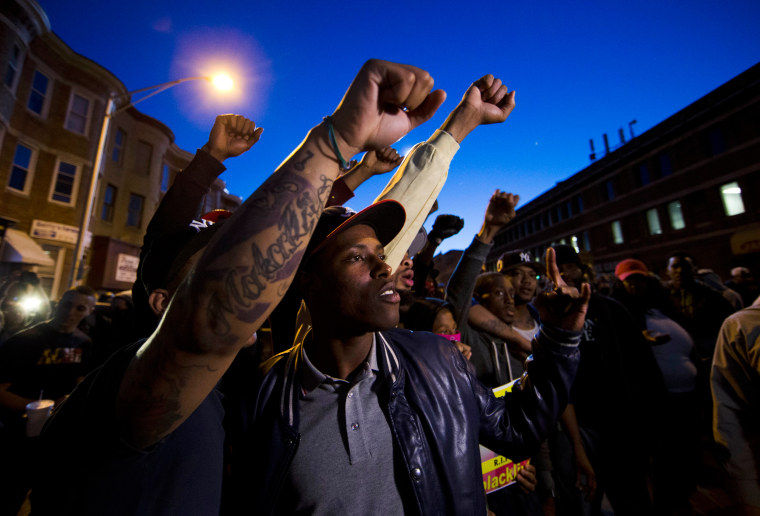
In March protestors took to the streets after the Department of Justice decided not to file charges against Darren Wilson, the officer responsible for the death of Michael Brown.
In April hundreds marched down the streets of Baltimore in protest of the death of Freddie Gray while in police custody.
In May demonstrators took to the streets in Madison, Wisconsin to protest the announcement by District Attorney Ismael Ozanne that no charges would be brought in the shooting death of unarmed teen Tony Terrell Robinson.
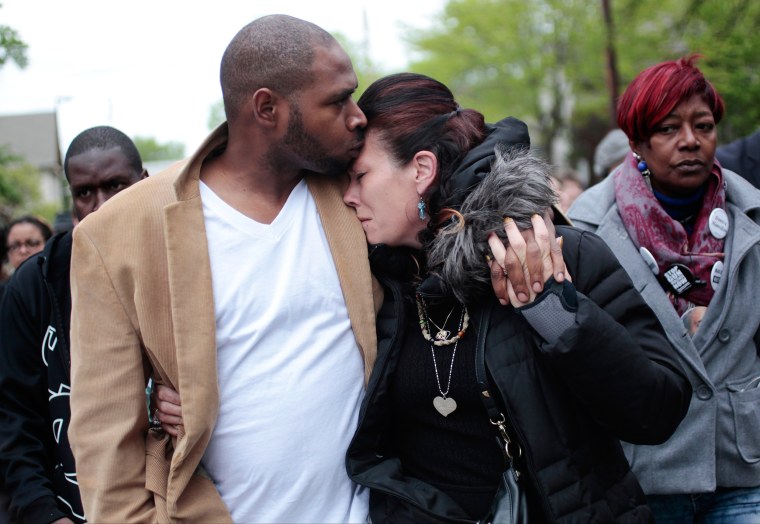
Then on June 17, the unthinkable occurred. While at their evening prayer group at the historic AME church in Charleston, South Carolina nine black parishioners were gunned down by domestic terrorist Dylann Roof. His desire was to start a race war and instead it prompted many to question how white supremacist ideology and the South’s deep connection to the Confederacy played a role in his terror.
RELATED: Essay: ‘Your Heritage is Hate’, Take Down the Flag
Marches and pleas from politicians to preachers called for the Confederate Flag, which was flying high on the state’s capitol building, to be taken down. While white southerners claimed history—the nation decried the symbol as stain on America’s history. As the protests in the state continued and talking heads on cable news squawked—calling the incident anything but domestic terrorism—activist Bree Newsome took matters into her own hands, literally.
Wearing rock climbing equipment Bree Newsome scaled the flagpole at the state capitol building and took the confederate flag down. Her act of courage was captured on video and went viral on social media. In a statement she wrote:
“We removed the flag today because we can’t wait any longer. We can’t continue like this another day. It’s time for a new chapter where we are sincere about dismantling white supremacy and building toward true racial justice and equality.”
Bree became the new symbol of freedom and justice with her daring act. Her brazen courage stoked the flames of resistance that had been simmering across the country all year. With one brilliant move Bree told the world that the time for waiting was over and the time for action is now.
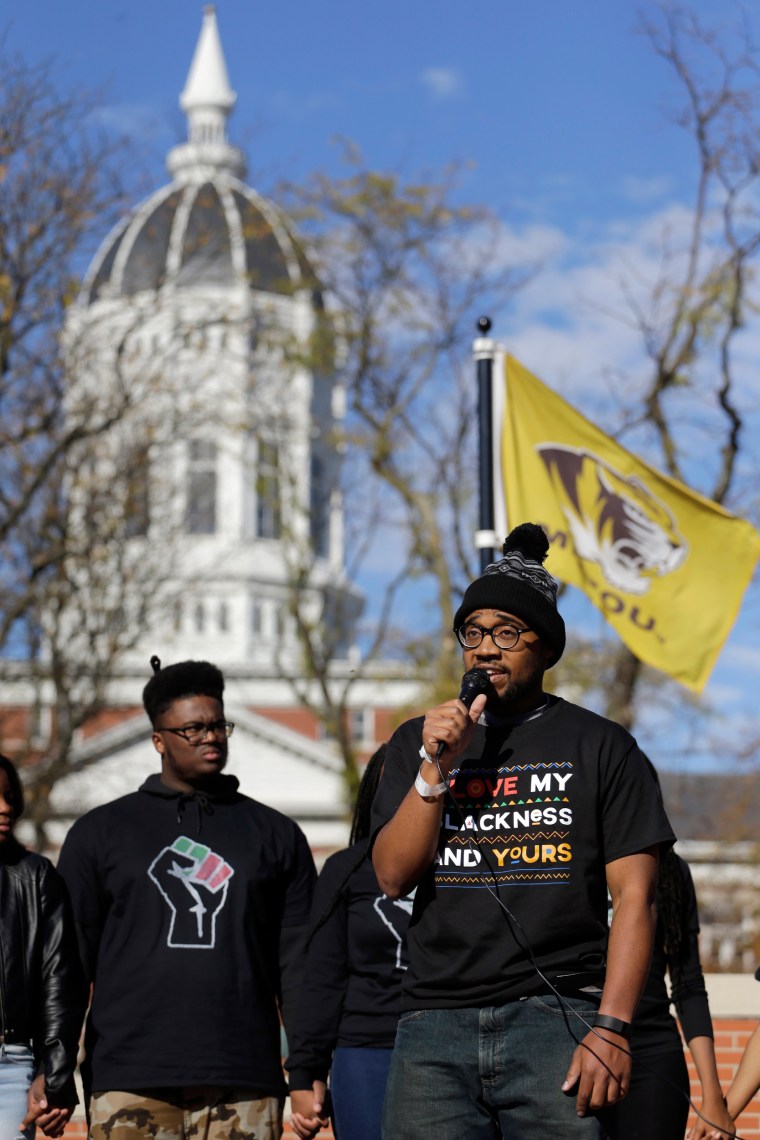
This urgency of now spread far and wide and reached the doors of the University of Missouri where, in November, Jonathan Butler began a hunger strike. After several racially motivated incidents went unchecked by the university president Tim Wolfe, Butler announced on November 2nd that he wouldn’t eat another thing until Wolfe was removed.
RELATED: Ferguson Frontlines: Photojournalist Reflects One Year Later
News of his action spread and the black players on the football team hearing of his hunger strike joined him and said they would not play another game until Wolfe was gone. Fearing the financial impact, not to mention the health crisis that Butler was facing—Wolfe resigned.
Theodore Roosevelt once said, “justice consists not in being neutral between right and wrong, but in finding out the right and upholding it, whenever found against the wrong”. With each act of resistance we are upholding our right to be free from persecution and execution based on our skin color.
To be clear, we as a country are at a tipping point. The status quo of white supremacy and state sanctioned violence against black people is no longer a single community’s problem—it is the country’s problem.
What began as a hashtag has sparked a movement—waking us all to the reality that none of us is free until we are ALL free. The revolution may not be televised but it will be tweeted and it will continue trending until black lives actually matter.
